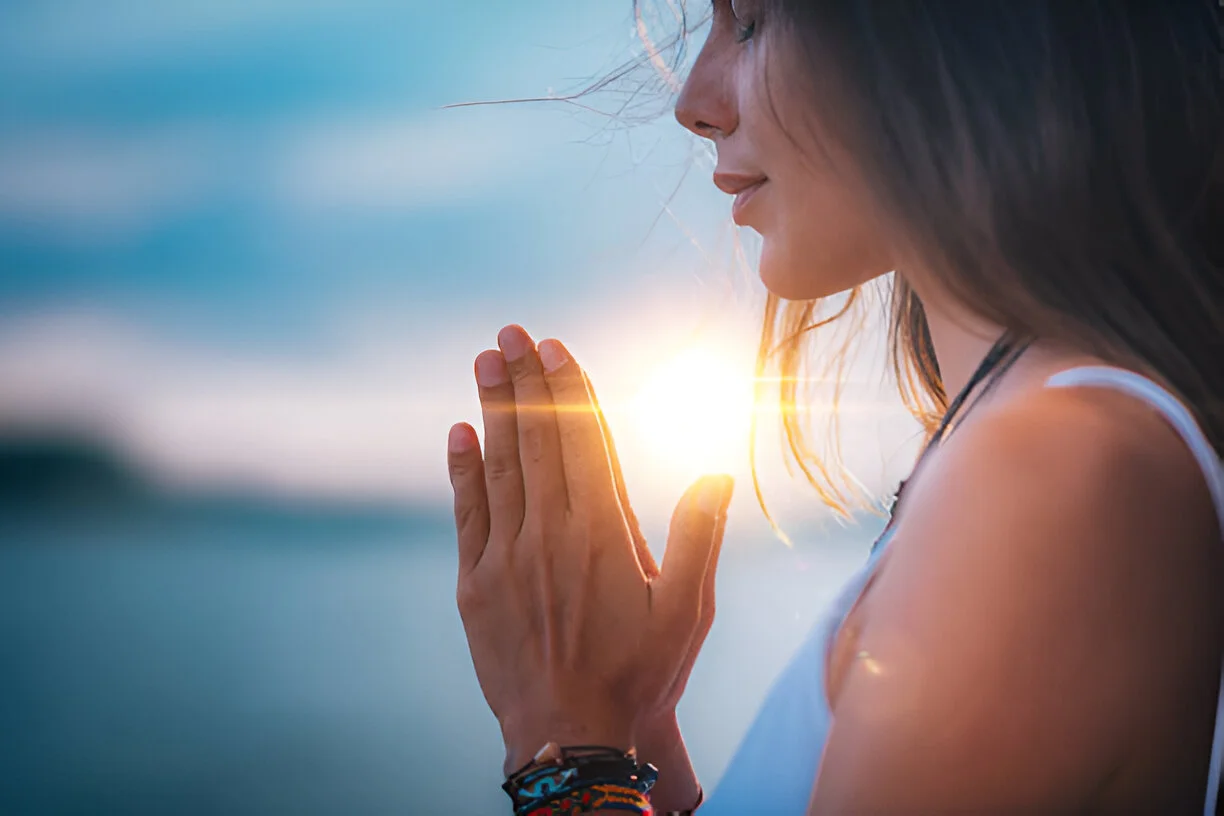In our fast-paced, distraction-heavy world, many people are seeking deeper meaning beyond material success. Spirituality—once thought of as something reserved for monks, mystics, or religious devotees—is now recognized as a personal and practical way to live a more intentional, peaceful life.
But if you’re just starting, spirituality can feel overwhelming. Where do you begin? What do you need to know? And do you have to follow a religion to be spiritual?
The good news is: you can begin your spiritual journey today, exactly where you are. No rituals, gurus, or sacred spaces required. All it takes is curiosity, openness, and a desire to connect with something deeper.
In this article, we’ll explore simple spiritual practices for beginners that are accessible, meaningful, and easy to integrate into your daily life.
What Is Spirituality?
Before diving into the practices, let’s clarify what spirituality means.
Spirituality is the personal quest to understand your place in the universe, connect with a greater presence (whether that’s God, the Universe, or your Higher Self), and live in alignment with your core values. It’s not necessarily tied to religion, although it can be.
At its core, spirituality is about:
-
Inner peace and awareness
-
Connection—with self, others, and the divine
-
Living with intention and authenticity
And it all begins with small, conscious actions.
1. Start with Daily Stillness (Meditation or Silence)
One of the easiest and most powerful spiritual practices for beginners is simply learning to be still.
How to Begin:
-
Sit quietly for 5–10 minutes a day.
-
Close your eyes, breathe slowly, and observe your thoughts without judgment.
-
Use a timer and start small. You can gradually increase the duration.
Why It Matters:
Stillness helps you quiet the mental chatter and reconnect with your inner self. It also opens the door for intuition, clarity, and spiritual insight to flow in.
Tip: Don’t worry about “doing it right.” The act of showing up in silence is enough.
2. Practice Gratitude Every Morning or Night
Gratitude is a powerful spiritual tool. It shifts your focus from what’s missing to what’s already abundant.
How to Begin:
-
Keep a gratitude journal.
-
Write down 3 things you’re thankful for each morning or before bed.
-
Be specific—“I’m grateful for my warm cup of tea this morning” is better than a generic “I’m grateful for life.”
Why It Matters:
Gratitude raises your vibration and strengthens your spiritual connection by helping you live in appreciation, not expectation.
3. Spend Time in Nature
Nature is a living, breathing spiritual teacher. You don’t need a forest retreat—just step outside and pay attention.
How to Begin:
-
Go for a mindful walk without distractions (leave your phone behind).
-
Sit under a tree or near water and observe the sights and sounds.
-
Feel the breeze, listen to the birds, and breathe deeply.
Why It Matters:
Nature reminds us that we are part of something larger. It fosters calm, presence, and awe—key components of spiritual awareness.
4. Set Intentions Instead of Goals
Traditional goal-setting focuses on external achievements. Intentions, on the other hand, align with how you want to feel and who you want to become.
How to Begin:
-
Every morning, ask: “How do I want to show up today?”
-
Write your intention. Example: “Today, I choose to respond with compassion.”
Why It Matters:
Intentions reconnect you with your spiritual values and guide your daily actions from the inside out.
5. Create a Sacred Space at Home
You don’t need a full altar or meditation room, but having a physical space dedicated to spiritual reflection can enhance your practice.
How to Begin:
-
Choose a quiet corner of your room.
-
Add items that inspire peace—candles, crystals, spiritual books, a plant, or meaningful photos.
-
Use this space for journaling, meditation, or prayer.
Why It Matters:
A sacred space acts as a reminder to pause, reflect, and connect—even on busy days.
6. Read or Listen to Spiritual Teachings
Spiritual growth is a lifelong journey. Exposing yourself to different philosophies can deepen your understanding and spark inspiration.
How to Begin:
-
Read books by spiritual teachers (e.g., Eckhart Tolle, Thich Nhat Hanh, Deepak Chopra).
-
Listen to podcasts or YouTube talks on mindfulness, self-awareness, or higher consciousness.
Why It Matters:
Learning keeps you grounded and helps you form your own beliefs based on reflection, not blind acceptance.
7. Practice Mindful Acts of Kindness
Spirituality isn’t just about inner peace—it’s also about how you show up in the world.
How to Begin:
-
Compliment a stranger.
-
Send a kind message to someone unexpectedly.
-
Volunteer or help without expecting anything in return.
Why It Matters:
Acts of love and kindness expand your spiritual energy outward. They remind you that we’re all connected.
8. Connect with Your Breath
Your breath is your constant companion. It anchors you to the present moment and offers a direct path to peace.
How to Begin:
-
Take 5 deep, conscious breaths whenever you feel overwhelmed.
-
Focus on the inhale and exhale—nothing else.
Why It Matters:
Breathwork brings you back to now, where your power and presence exist.
9. Ask Reflective Questions
Journaling is a great way to explore your spiritual side.
Prompts to Get Started:
-
What makes me feel most alive?
-
What do I believe about the universe?
-
Where do I feel disconnected—and why?
-
What does my soul need today?
Why It Matters:
These questions help you move beyond surface thinking and dive into the deeper truths that shape your spiritual identity.
10. Trust Your Intuition
Your intuition—sometimes called your inner voice, higher self, or gut feeling—is a key spiritual compass.
How to Begin:
-
When faced with a decision, pause. Ask yourself: “What feels true for me?”
-
Pay attention to your body’s signals. Anxiety often speaks loudly; intuition feels calm and steady.
Why It Matters:
Following your inner guidance strengthens your trust in yourself and your spiritual path.
Final Thoughts: Start Where You Are
You don’t need to be “spiritual enough” to start. You already are. Every moment of mindfulness, every act of gratitude, every pause for reflection—that’s spirituality in action.
There’s no perfect roadmap. Your spiritual journey is deeply personal and always evolving. What matters is that you begin. Start with just one practice from this list and build from there.



